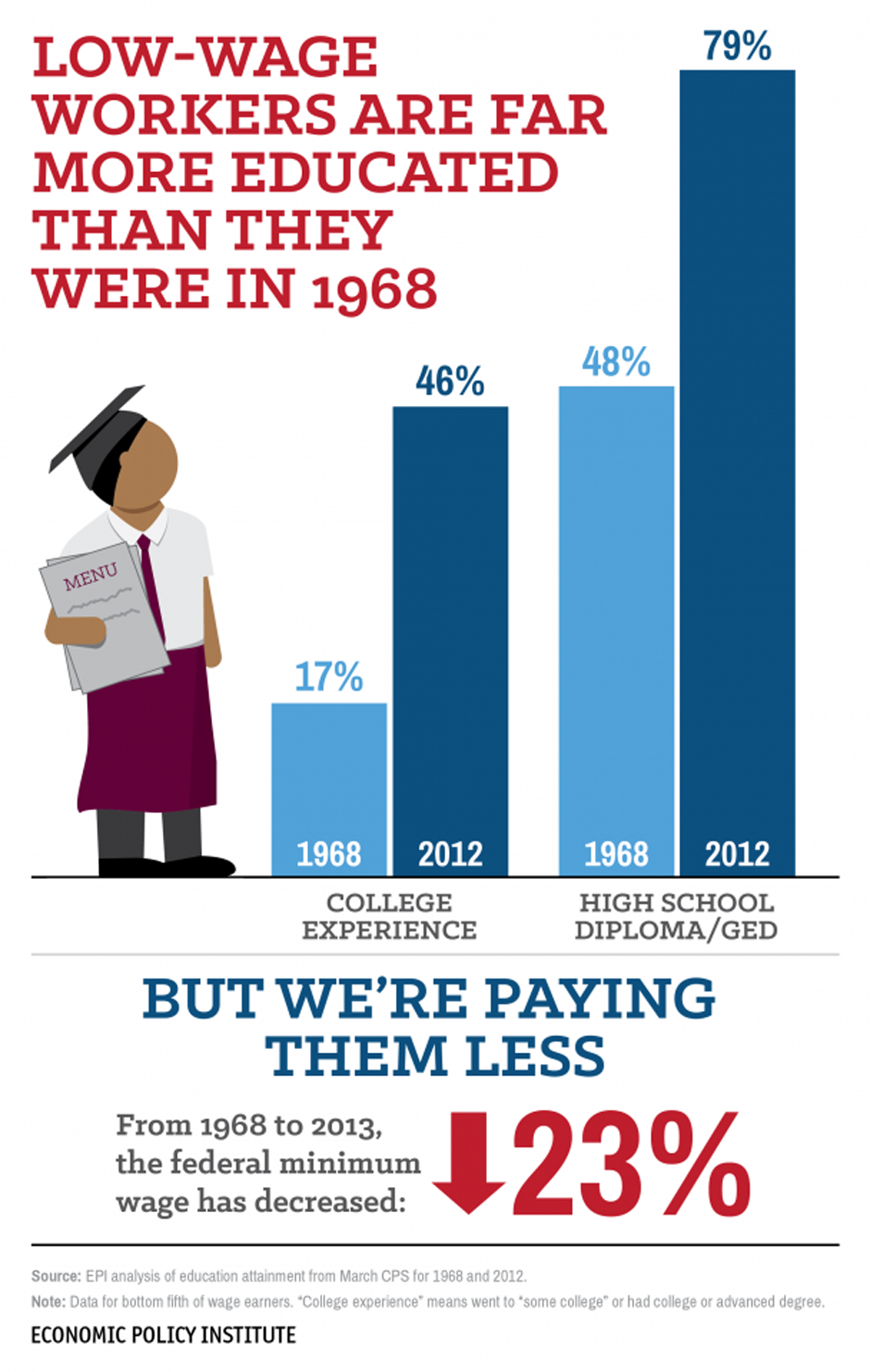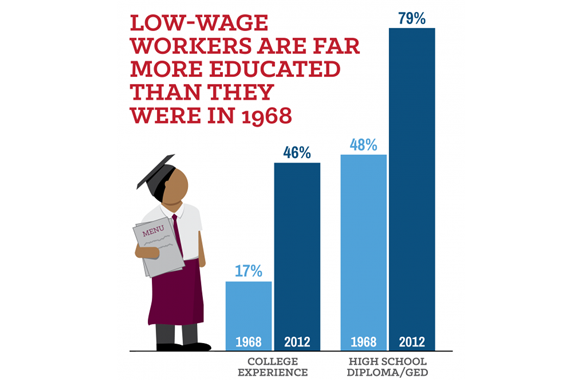In an exclusive interview with First Lady Barbara Bush we discover the problem of unemployment, people cannot secure a job because they cannot read? The preeminent Mrs. Bush confidently expressed as sadly accepted, “If you can’t read, you can’t get a job and you can’t take care of yourself or your children.” However, it is a handicap that can be remedied, she believes. “We have such a high quality of life available to anyone who pursues an education.” Oh, dear Barbara Bush, and your many compatriots, might it be that much more than literacy determines one’s station? But how might we explain Employers Prefer White Felons Over Blacks With No Criminal Record or the numbers of Minority Children Kicked Out of School for minor offensives? It would seem, Mrs. Bush, we have zero tolerance and less understanding of the situation; even with an education our people are unemployed and frequently working for low wages.
Could it be that we intentionally impoverish people, illiterate or not? Please help us. It would seem that education is not the cure
Low-Wage Workers Have Far More Education than They Did in 1968, Yet They Make Far Less
The minimum wage is 23 percent less than its peak inflation-adjusted value in 1968. This is despite productivity (how much output can be produced in an average hour of work in the economy) more than doubling in that time period. The low-wage workforce has surely contributed to this rise in economy-wide productivity, since as a group they have far more education now than they did then. For the workforce overall, 37 percent in 1968 had not completed high school (or received a GED), which was true for only 9 percent in 2012 (the latest year with comparable data). We can drill down to examine low-wage workers, which we are defining for this analysis as those earning in the bottom fifth of the wage distribution.
The figure below shows that low-wage workers have far more education now than they did back in 1968. In 1968, 48 percent of low-wage workers had a high school degree, compared to 79 percent in 2012. Correspondingly, many more low-wage workers have attended at least some college or have a college degree, which the graph identifies as ‘college experience.’ While only 16.8 percent of low-wage workers in 1968 had gone to some college or had a college degree, that group had grown to nearly half (45.7 percent) by 2012. The bottom line is that minimum wage in 2013 is far less now than it was in 1968 despite the economy’s productivity more than doubling, and low-wage workers attaining far more education.

References and Resources…
- An Exclusive Interview with Barbara Bush. By Kim Watts-Diaz Parenthood. 2012
- Minority Kids Disproportionately Impacted By Zero-Tolerance Laws. Halimah Abdullah EmpathyEducates. January 25, 2014
- Employers Prefer White Felons Over Blacks with a Criminal Record. By Kathleen Cross EmpathyEducates. July 11, 2011












Leave A Comment